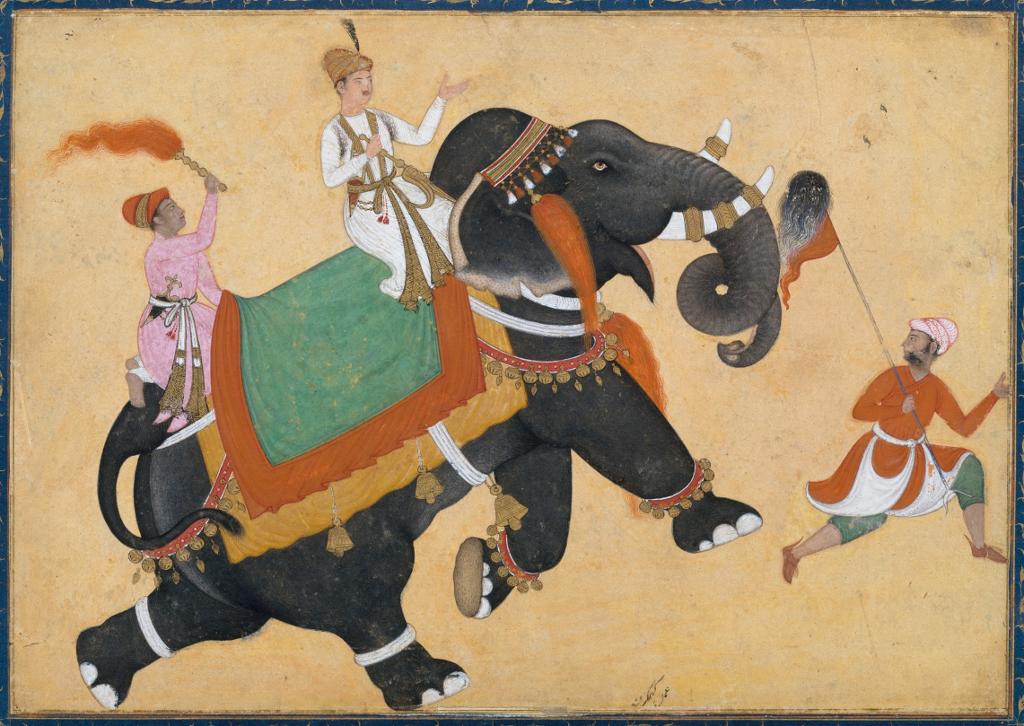Amazon Audible Gift Memberships

Try Amazon Audible Premium Plus and Get Up to Two Free Audiobooks
Prince Riding on an Elephant
by Khem Karan, late 16th Century, Punjab, Mughal India.

A larger image of Prince Riding on an Elephant, by Khem Karan, late 16th Century, Mughal India
Prince Riding on an Elephant
Artist: Painting by Khem Karan
Object Name: Illustrated album leaf
Mughal: period of Akbar (r. 1556- 1605)
Geography: Attributed to India
Medium: Ink, opaque watercolor, and gold on paper
Dimensions: Page: H. 12 1/4 in. (31.1 cm) W. 18 1/2 in. (47 cm) Painting: H. 7 3/4 in. (19.7 cm) W. 10 3/4 in. (27.3 cm) Mat: H. 19 1/4 in. (48.9 cm) W. 14 1/4 in. (36.2 cm)
Accession Number: 25.68.4
Elephants were highly prized at Indian courts, greatly appreciated as gifts, and eagerly sought as booty in military campaigns.
Paintings of several admired elephants were made at the Mughal court, much as portraits were made of courtiers and nobles.
Khem Karan, whose signature appears at the bottom of the picture, was a well-known painter in Akbar’s atelier.
The Metropolitan Museum of Art, New York
Artists of several nationalities filled Akbar's atelier, and disparate stylistic elements were often incorporated into a single painting.
This page displays the Indian sensibility of its painter in its division into large areas of color and the choice of a flat yellow background.
However, the physiognomy of the prince is clearly dependent on Persian prototypes, and the artist's modelling of forms to create the sense of volumes within space, most observable with the elephant, is purely Mughal.
Such details as the trunk curling over itself, the foot raised to reveal an ovoid underside, and the tail swishing in front of the saddle blanket contradict the work's decorative flatness, suggesting a space deeper than that in contemporaneous Rajput painting, where pictorial elements rarely break out of a plane.
The artist is interested as well in conveying to the viewer the texture, movement, and weight of the objects he describes rather than presenting idealized images of them.
Source: p.36, Indian Court Painting, 16th-19th Century by Steven Kossak
via Metropolitan Museum of Art, New York
Back to Mughal, Rajput and Maratha Illustrations of Costume and Soldiers

